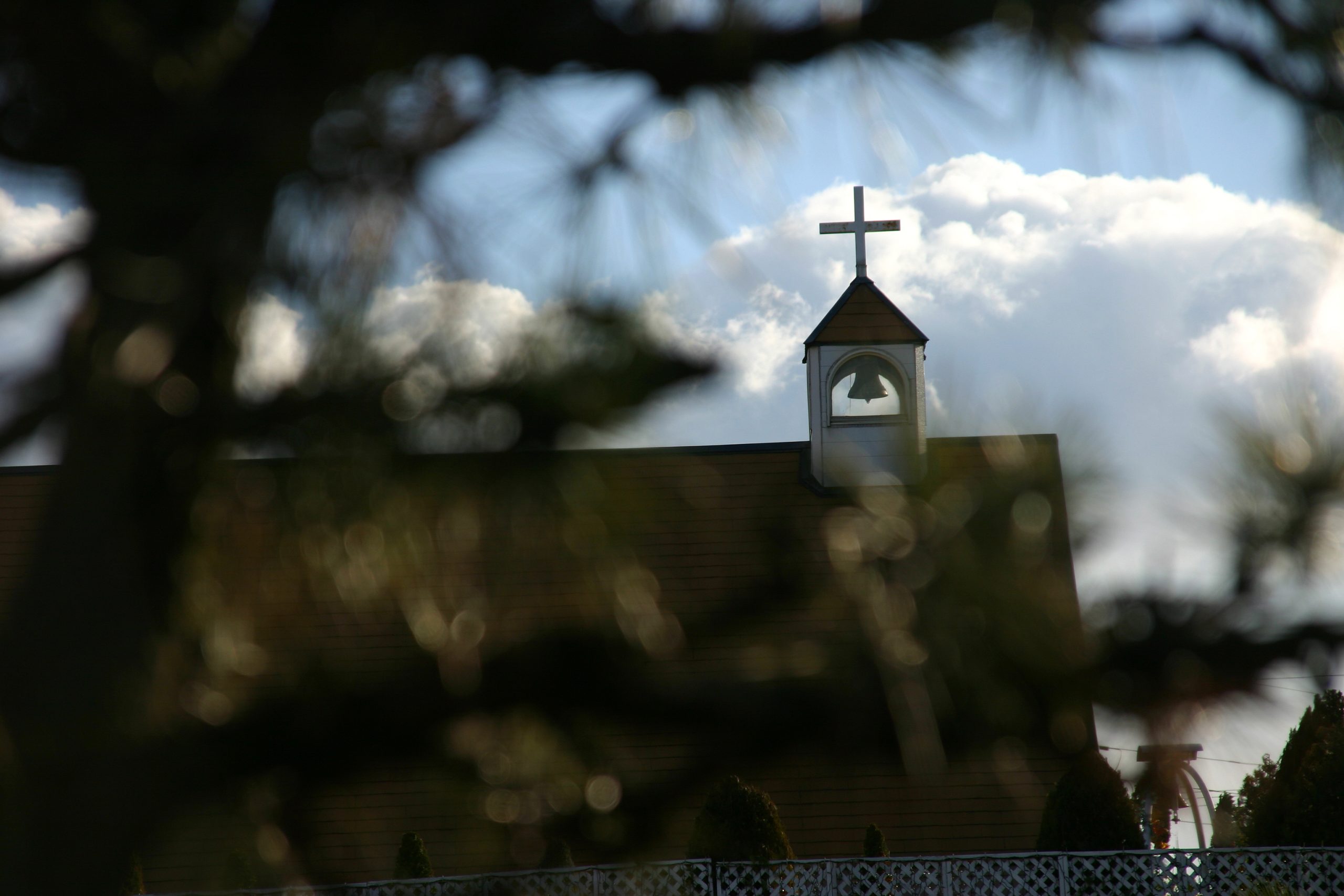Churches facing shrinking congregations across California are turning their parking lots into affordable housing projects. This is a normally difficult process made easier by a new law that allows religious institutions to build affordable housing on their property, even if local zoning prevents it.
Senate Bill 4, also dubbed “Yes in God’s Backyard,” was signed into law by California Governor Gavin Newsom last October. Under the law, which took effect on January 1, faith institutions, including churches, synagogues, and mosques, and nonprofit colleges are allowed to build affordable housing on their property without having to go through the expensive and lengthy rezoning and discretionary approval process.
According to the bill’s sponsor, San Francisco Democrat and State Senator Scott Wiener, the law opened more than 170,000 acres in the state for affordable housing. Newsweek contacted Senator Scott Wiener for comment by email on Monday.
Getty Images
St. Mary in Palms in Los Angeles is one of the churches that want to take advantage of this new law to build affordable housing on their property. Rev. Paul Anthony Daniels, the church’s rector, told the Los Angeles Times that the plan is to build a place for homeless people living nearby St. Mary to live.
“The unhoused are part of this community,” Daniels told the newspaper. “Not only in the sense that we shelter them, but also in the sense that they live literally around the property.”
Daniels provided no details of where on the church’s property the new housing would rise, nor a timeline, saying it was too early at this stage. Newsweek contacted Daniels of St. Mary in Palms for comment by email on Monday.
Last month, the Archdiocese of L.A. announced that it will partner with nonprofit Our Lady Queen of Angels Housing Alliance to develop affordable housing in Southern California. Their first project will be building affordable apartments near L.A. City College for community college students and young people leaving foster care, as first reported by LAist.
Another church that has expressed the intention to build affordable housing on its ground is the 80-year-old Neighborhood Congregational Church in Laguna Beach, California. Facing dwindling membership, the church has decided to demolish two historic sanctuary buildings to construct a new, smaller spiritual center and an affordable housing complex, as first reported by KCRW. Newsweek contacted Laguna Beach’s Neighborhood Congregational Church for comment by email on Tuesday morning, outside of standard working hours.
Crucially, the Laguna Beach church started the process of building affordable housing on its grounds years ago, but SB 4 has made the timelines for development a lot more predictable. It is exactly what happened to another church, Los Angeles’ Bethel AME.
The church is undertaking a multiyear plan to build affordable housing on its parking lot, in the form of 53 five-story units that will be used as permanent supportive housing. The units will have parking on the ground floor, Logos Faith Housing, which is codeveloping the project, told Newsweek.
The new housing will be ready by spring 2025 and it will house up to 60 residents. “Residency selection is based on those who most need affordable and supportive housing—for example, those who are disabled, those who have been waiting for housing—and is voucher-based,” Logos Faith Development said.
“Churches are facing a crisis of declining membership and reduced donations and, at the same time, the communities they serve are facing a severe shortage of affordable residential units to live in: a faith crisis and a housing crisis,” Pastor Martin Porter, who founded Logos Faith Development, told Newsweek. The real estate firm specializes in helping churches build affordable housing.
“I was asked by some of these churches to help them find new sources of income and remain relevant in their ministries as well as how to develop their land into affordable housing,” Porter said.
“Winston Churchill said, ‘Never let a good crisis go to waste.’ In that vein, LOGOS has been able to be both innovative and impactful, potentially helping to solve the problem of replacing lost income from donations through development and how to convert church land into affordable housing at the same time, sparking the possibility of church renewal and more units for those who need them the most.”
As Porter said, the new law is helping churches replenish their coffers at a time when membership is declining, as well as addressing the very real homelessness crisis in California. According to the latest estimates, updated to December 2023, the homeless population in the Golden State was more than 180,000—up 6 percent from the previous count.
SB4 will expire on January 1, 2036.
